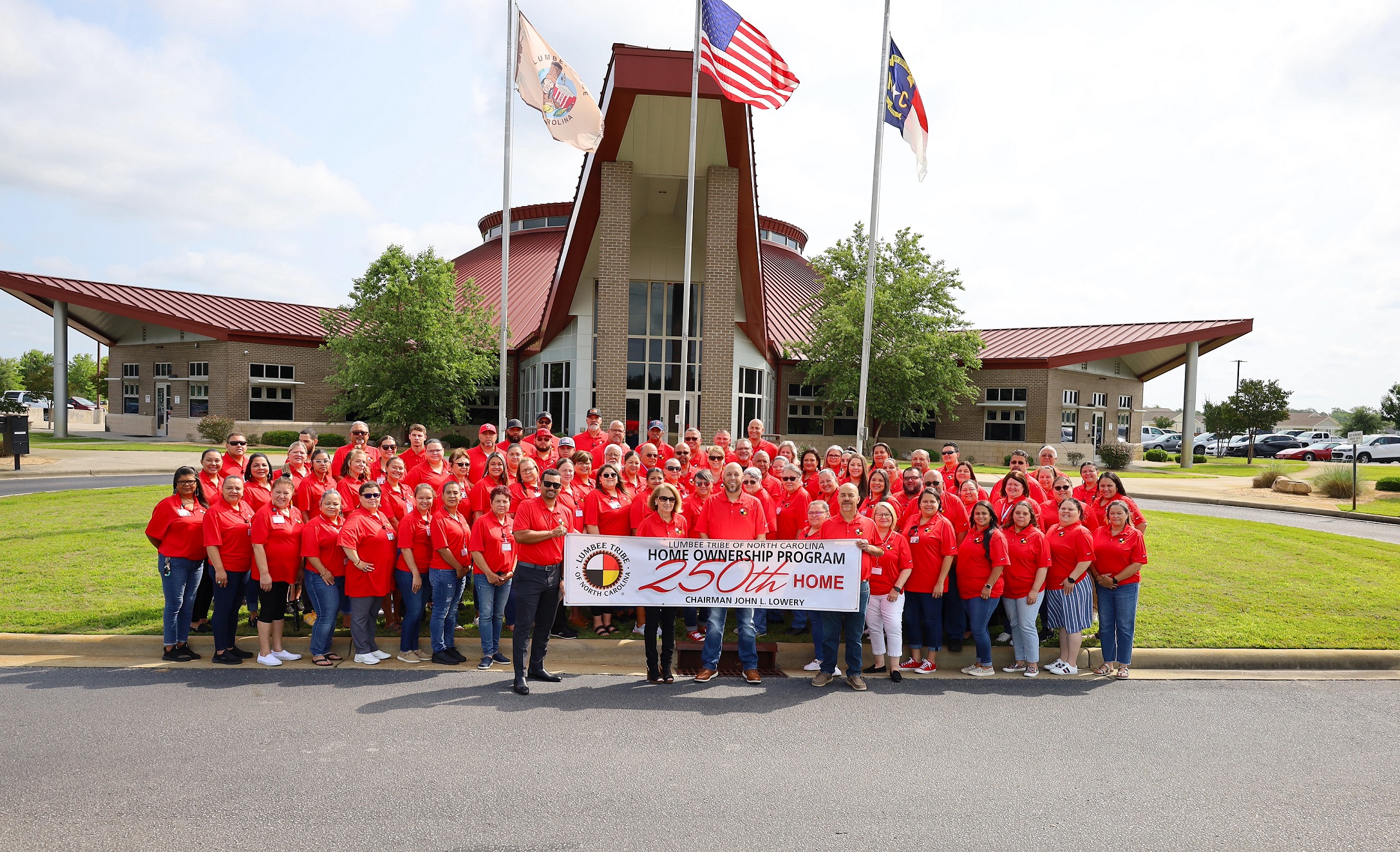
As the nation observes National Homeownership Month, the Lumbee Tribe of N.C. is celebrating a historic milestone. On June 16, the Lumbee Tribe administration, Tribal Council and staff celebrated the construction of the 250th home built for homeownership.
Tribal Chairman John L. Lowery expressed his excitement in knowing that the tribal government has helped 250 families to have a home of their own. “This is what we do every day at the Lumbee Tribe, work with our people to ensure our families have a place to call home,” said Lowery in a press release. “The homeplace is the heart of Lumbee families and I am proud to know we have helped establish 250 homeplaces for our Lumbee Citizens.”
Homeownership brings with it a sense of pride and security. Historically marginalized groups often face additional challenges on their journey to homeownership. The Lumbee Tribe of North Carolina Housing Department’s mission as stated on their website is to provide affordable, safe and sanitary housing options for eligible Lumbee Indian families in the service area of Cumberland, Hoke, Robeson and Scotland Counties.
National Homeownership month promotes the value of owning a home and the organizations that help further the American Dream of homeownership. It also celebrates the value that owning a home brings to families, communities and neighborhoods across America.
The Lumbee Tribe of North Carolina has a very robust Housing program. For information visit www.lumbeetribe.com

Kristen Botts co-founded the program with her husband, Nathan Botts, who is a Veteran himself. Photos provided by Kristen Botts.An organization helping Veterans live a full life after their service in the U.S. Military wants to connect Veterans and d

Patrick NoblesHuntington Bancshares Incorporated announced on Feb. 2 that it has closed its merger with Cadence Bank, a regional bank headquartered in Houston, Texas and Tupelo, Miss. This strategic partnership accelerates Huntington’s growth in

There is extensive dialogue surrounding Fayetteville as a travel destination or city aimed at recruiting new businesses and new residents. As someone who moved here from out of state, I thought it could be fun to share my personal experience as